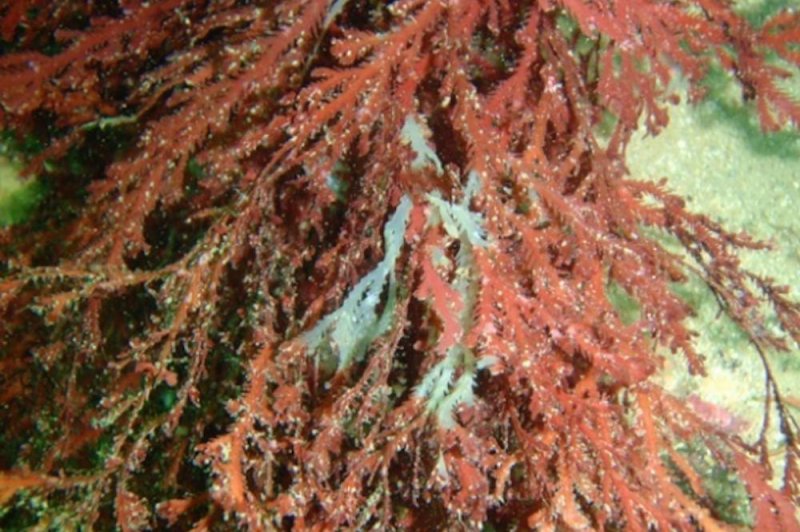Like coral, seaweeds can become stressed, sick and lose their pigmentation during so-called bleaching events. Photo by Alexandra Campbell/UNSW
SYDNEY, July 1 (UPI) -- When seaweeds become stressed by high water temperatures or pollution, normally harmless bacteria can trigger bleaching disease.
"A lot of attention has been paid to coral bleaching, but seaweeds are also affected by temperature-related diseases," researcher Suhelen Egan, a marine biologist at the University of New South Wales in Australia, said in a news release.
Like coral, seaweed provides food and shelter for myriad marine organisms, including small fish, mollusks and crustaceans.
The various causes of bleaching disease in seaweeds aren't well understood. To explore the avenues of infection, researchers at UNSW collected multiple samples of red alga, Delisea pulchra, from just off the coast of Sydney.
Roughly half the samples showed evidence of infection, having lost pigmentation among their branches.
"Bleaching reduces the ability of the seaweed to photosynthesise and harvest energy from the sun, and to reproduce," Egan explained. "It also makes them more susceptible to grazing by fish and other herbivores in the ocean."
Scientists identified three strains of microbes in greater abundance on sick seaweed. The three very different types of bacteria were from the Alteromonas, Aquimarina and Agarivorans genera. All have been shown to trigger bleaching disease.
Lab experiments showed the microbes proliferate and infect hosts when the host is stressed by warm water temperatures. Researchers also found that diseased seaweed samples featured less microbial diversity than healthy samples.
"We believe these kinds of opportunistic pathogens are more common in marine environment than had been realized before," Egan said. "They seize the chance to cause disease when the host is stressed, in the same way that normally harmless, common bacteria can cause disease in people who have weakened immune systems."
Researchers shared their latest findings in the journal Environmental Microbiology.















